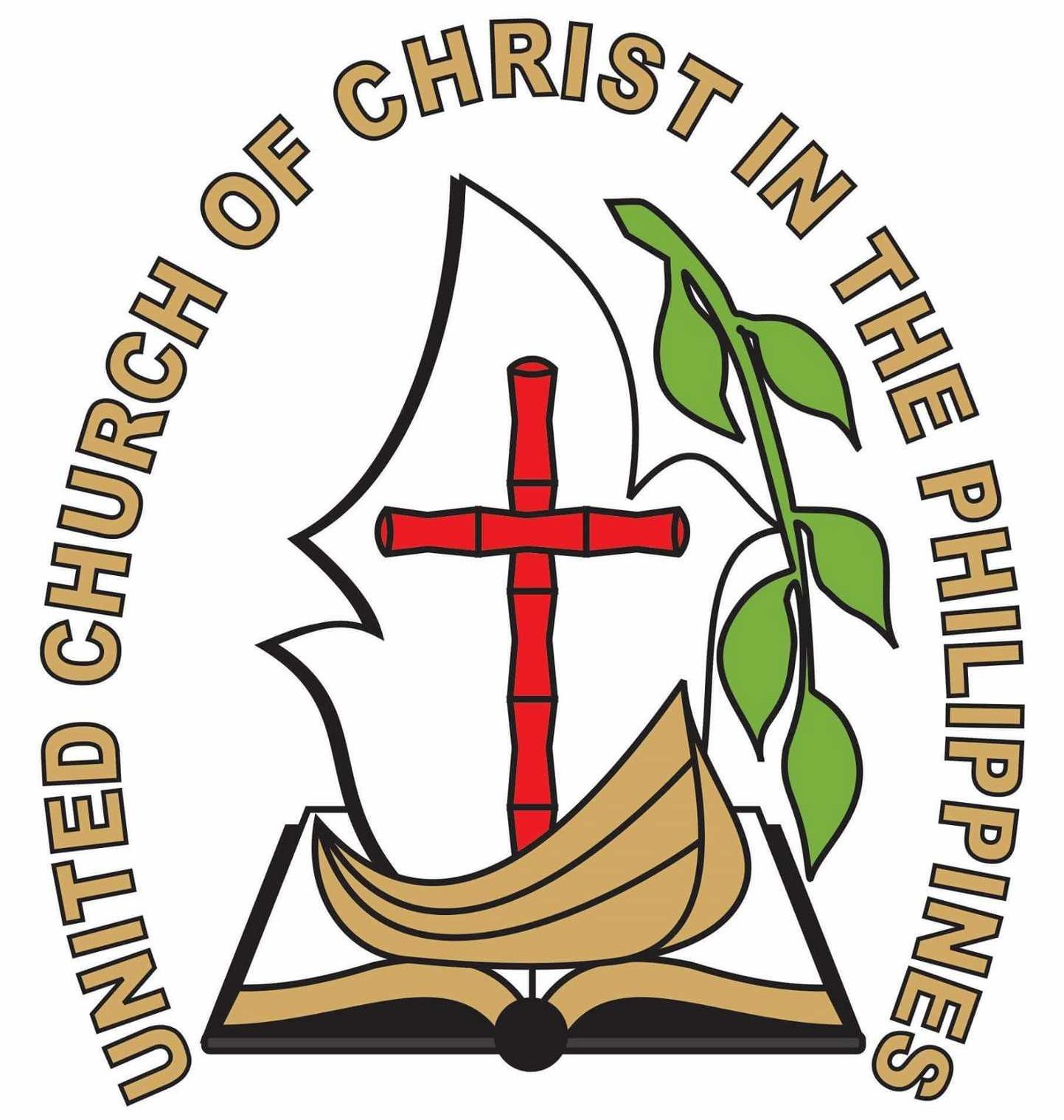DEVELOPMENT MINISTRIES
The vision of the United Church of Christ in the Philippines (UCCP) is to be a responsible, empowered, self-reliant and caring community of Christian believers committed to the pursuit of a transformed church and society towards an abundant and meaningful life for all. In order to achieve this vision, we have agreed that our mission as a church is to establish and unite the community of faith for the life-proclamation of the Gospel of our Lord Jesus Christ towards the transformation of both church and society.
We aim to live out this mission, which we strive to be aligned with the mission of Jesus Christ, through the following goals:
• To strengthen the faith community
• To enrich the life-work of communities where local churches are located
• To deepen the impact of the church’s collective response to societal issues and concerns
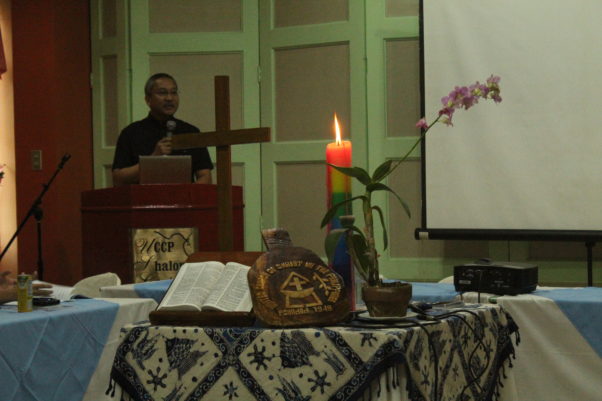

To accomplish these goals, we need to empower our laity and our local churches in consonance with the following principles:
• We, the UCCP, is an integral part of the universal church.
• We, the Church, exists for mission.
• The locus of mission is the local church.
• Mission must grow out of the context where it occurs.
• The local church should develop faith-based and community-oriented ministries.
• Effective management of these responsive ministries is imperative.
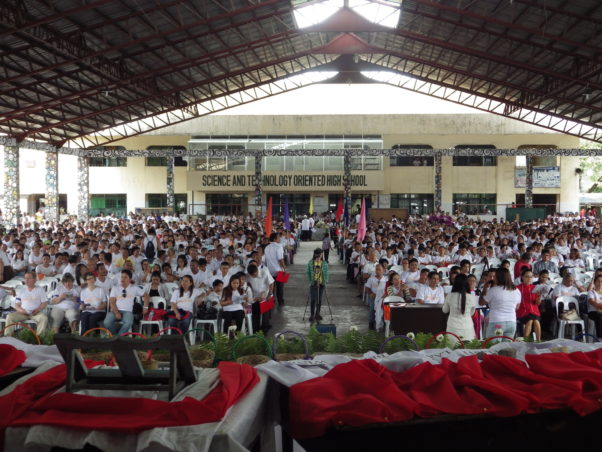

The main avenue by which the UCCP seeks to empower its constituents is through the Laity and Local Church Development Ministries. The Church’s constituents include the judicatories (from the local church, the conference, and the jurisdictional level), the church-recognized organizations (the Christian Youth Fellowship, the Christian Young Adults Fellowship, the Christian Women’s Association, the United Church Men, and the United Church Workers Organization), and the church institutions (schools, hospitals, and service centers).
This program is the foundational component of the life and work of the UCCP. It focuses on deepening and strengthening the faith foundation of members by producing materials that equip the entire church constituency on matters of Christian faith and living. It is responsible in producing a strong network of Christian education workers to handle different aspects of the education ministry of the Church. The program’s goal is to ensure that every aspect of the Church’s life and work is grounded on a profound understanding of the Christian faith and its imperatives for Christians today.
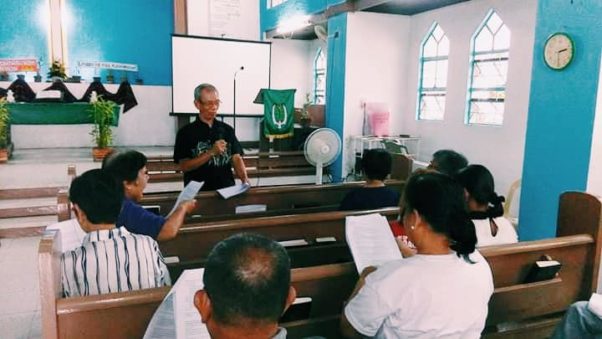

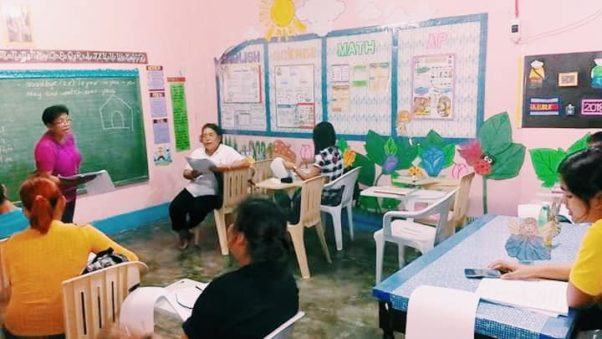

The goal of this program is to foster among the constituency an appreciation of the importance of the evangelistic task of the Church and a commitment to equipping and sustaining qualitative and quantitative church growth. It focuses on empowering church workers, laity and local churches towards integral evangelization that seeks to transform lives and communities and to do mission for a just and compassionate social order.
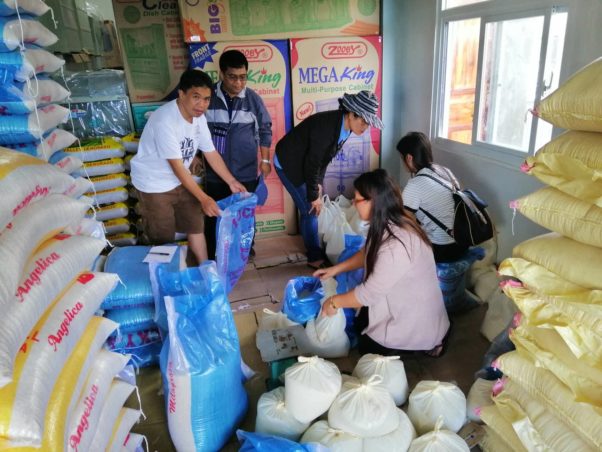

The goal is to deepen among the UCCP constituency the biblico-theological understanding of mission and foster a collective acknowledgement of our human responsibility and accountability for all of God’s creation. It conducts empowerment activities for local churches and marginalized sectors, helping communities become sustainable. The communities that are reached are expected to develop programs that will also reach out and help others.
The goal of this program is to harness a committed and dedicated collective response of the Church to the need to bring wholeness of life for all of God’s creation. Through this program, we enable our constituents to be knowledgeable of what our prophetic witness as a Church is all about through capability building activities. We seek to give direct services including moral support, psycho-social intervention, financial support and scholarships to victims of human rights abuses and their families, advocate for peace based on justice, and lobby policies and legislation on justice, peace and human rights issues. We network with partners and allies among ecumenical partners locally and internationally, recognizing that we do not have the monopoly on this work.
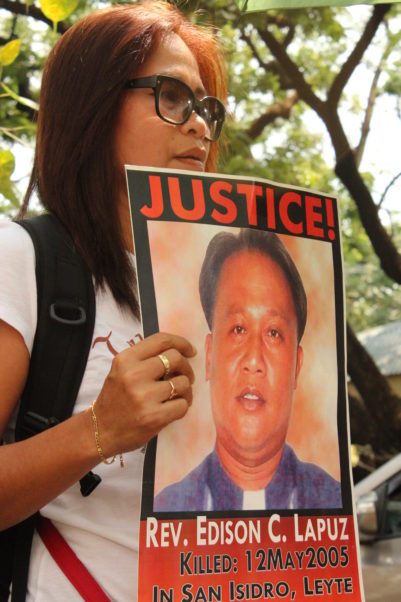

The church as a community of faith has inherent responsibilities of ensuring that all members grow in faith, individually and in community, and in reaching out to others. This mandate is very clear for the UCCP as defined in our statement of faith, our vision, mission and goals, and our declaration of principles. We have to fully understand and live out our faith in Jesus Christ: individually as persons created in the image of God and in community with others and the rest of creation; each one transformed into a new being and the whole world transformed where God’s reign of love, justice, peace and a full life for all are manifested.
This membership course aims to unite and consolidate church membership by providing them foundational Christian teachings, skills, and general orientation for an active involvement in church life and works. It is considered basic because it is meant to be the first course church members should undergo before taking other courses. Every church member should undergo this unified, systematic and relevant membership course. It follows a system of educating members according to their particular levels of membership and attempts to respond to the perceived educational needs of members based on their levels of membership and contexts of mission and ministry. The four levels of curricula are: for prospects, for preparatory members, for communicant members, and for leaders.
These materials are anchored on teaching the important documents of the UCCP. This three-year curriculum cycle uses the Revised Common Lectionary as basis for Biblical references. The first year teaches the Statement of Faith (SOF); the second year the Vision, Mission, Goals (VMG); and the third year, our Declaration of Principles; after which the cycle begins anew. The age-level categories are Nursery-Kindergarten-Prep, Younger Elementary (Grades 1-3), Older Elementary (Grades 4-6), Youth, and Adults. Sunday School goers in the children age groups need not necessarily repeat the same lessons as they will be progressing to the next age-level by the time the curricula cycles back. Youth and Adult Sunday School goers may cycle back if they opt to. Advanced curricula based on issues and concerns of the church will then be taught.
This Bible study guide unites our young members in their faith development according to the principles of the UCCP and the CYF. It aims to nurture and guide the youth in their everyday faith journey and instill in them a deep understanding of their role and commitment as members of the CYF and the UCCP.
The aim of this program is to train capable and committed lay people in local churches to promote the ministry of UCCP to the communities. The target participants of this program are regular and active members of a local church for at least two years, officers of the church council, church organizations, and those being recruited to the ministry, and leaders of church institutions.
As a church of Jesus Christ, we have the responsibility to accomplish the mandate entrusted to us: to continue the mission that Jesus started. We must organize ourselves and simultaneously organize others to join us through this intentional program for church community organizing. There is a standard training manual that is used.
this will help bridge the gap in leadership empowerment
This nationally-coordinated program aims to develop a ministry of care for students within a community that instills in them a deep sense of koinonia or caring expressed in engendering a sense of belongingness, love for self and others, and committed service to the community.
This is an innovative and wonderful expression of celebrating our faith and bringing the good news to everyone. In these gatherings, thousands of members and friends are brought together to celebrate the varied creative gifts the church has. It is a joyful way of witnessing to our faith and principles as UCCP.
These trainings enable church constituents to be knowledgeable on what the prophetic witness ministry of the UCCP is all about. This is conducted through orientation studies throughout the country. Presentations are made through Biblico-theological reflections emphasizing the contemporary context of the church’s mission locally and globally, in the light of the historical context and message of the biblical prophetic faith and struggle in both the Old and New Testaments times. Such prophetic spirituality of engagement for the mission of transformation is a faith imperative that the church is being challenged to manifest in loyalty and obedience to the prophetic life and ministry of Jesus Christ, the Head of the Church.
This resource material contains creative liturgies, sermons, Bible studies, Biblico-theological reflections, testimonies of family members of human rights violation victims and/or the victims themselves, reports and updates on the JPHR Program, pastoral statements and letters through the Incumbent Bishops, Council of Bishops and/or the National Council addressing burning social issues and concerns, and a glossary on the Human Rights standards and terminologies used internationally and domestically. The production of this guide coincides with the celebration of the United Nations (UN) Declaration of Human Rights Day (December 10). This project aims to provide our church constituents and even our mission partners abroad with a suggestive resource material to help strengthen our faith through study and worship, and to inspire us to manifest our public witness in living out our faith.
Being an advocate is all about standing up for other people’s rights. This stance is an imperative of faith and therefore must be developed in each member.
This pool of advocates is entrenched in the conferences and jurisdictions and is part of the JPHR Committee or Desk in their respective areas. This team facilitates the conduct of para-legal trainings for human rights advocates and defenders and will form Quick Reaction Teams in the areas where human rights violations (HRV) are rampant.
This special project includes a damage suit filed in court in 2011 against Former President Gloria Macapagal-Arroyo for human rights violations against several UCCP pastors and lay leaders allegedly committed by state agents (military and police) and operatives. This case is currently before the Court of Appeals in Manila.
This series of fora tackles various burning social issues of the day, providing balanced and principled information, along with Biblico-theological reflections serving as basis or reference for church people’s moral judgement and action. This was started during the dark years of Martial Rule of the dictator Pres. Ferdinand E. Marcos and was revived in 2016.
Concrete support in terms of finance and other relevant interventions are provided as expression of our pilgrimage with the surviving families, groups, and/or communities who have been victims of human and people’s rights violations in their search for justice and as they recuperate from pain and loss of loved ones towards a future life with hope and meaning.
We strengthen ministries that will help mitigate climate change, promote appropriate and alternative technology and help communities become sustainable. As a member of the National Council of Churches in the Philippines (NCCP), and along with the country’s other major Christian councils—the Catholic Bishops’ Conference of the Philippines (CBCP) and the Philippine Council of Evangelical Churches (PCEC)—we have institutionalized coordination efforts in humanitarian and disaster and risk reduction work. Through the many natural and human-made disasters our country and people withstand, we try our best to respond to requests in times of calamity. We also plan, implement and support post-disaster rehabilitation projects.
This program seeks to deepen the ecumenical-theological perspectives on migration, globalization and development, intensify integral evangelization work among migrant workers, enable migrant workers to actively respond to issues which directly affect them, systematize and broaden the scope of social services given to migrant workers, strengthen advocacy work for respect for human rights of migrant workers, strengthen existing organizations of migrant workers and forge new fellowships or interest groups, and give pastoral care for families and migrant workers.
FIND OUT HOW YOU CAN SUPPORT US
As each has received a gift, use it to serve one another,
as good stewards of God’s varied grace.
1 PETER 4:10
